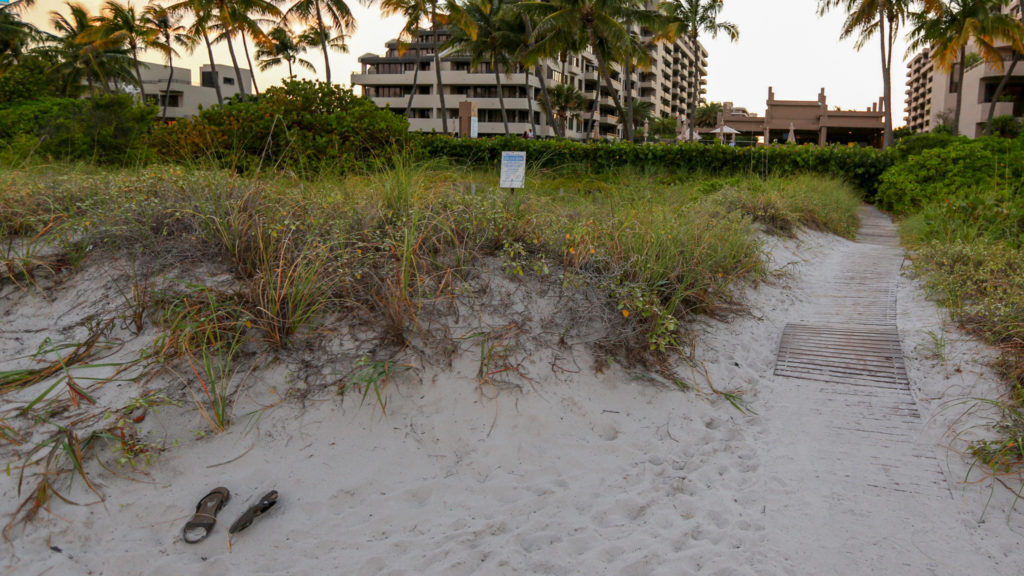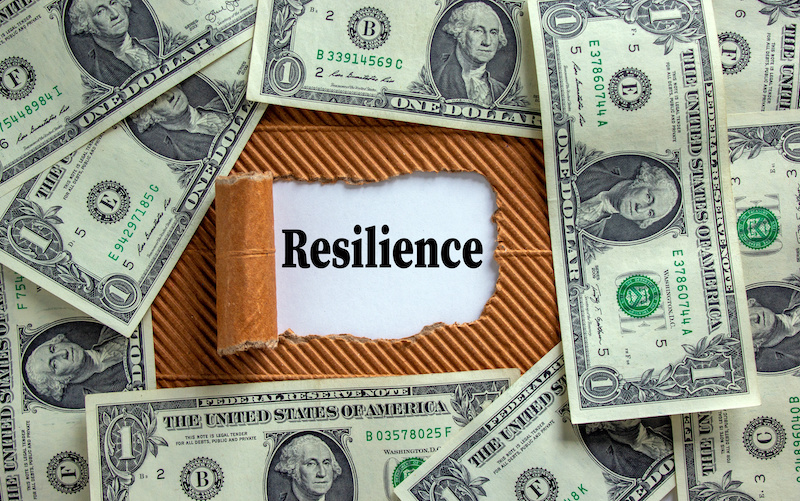Taxed to the Hilt, More Homebuyers Migrating to Florida
David Lyons, Sun-SentinelJuly 1, 2019

In this file photo, the Key Colony condominium is seen from an Atlanic Ocean Beach, April 19, 2014 (Key Content/Tony Winton)
FORT LAUDERDALE — Fed up with the high taxes and regulation back home in New York, retired officer Thomas Maloney and his wife, real estate agent Theresa Hart, are looking to offload a home in Long Island — quickly.
“It’s been a thorn in my side for the past seven years,” Maloney said. Between regulations that favor tenants and rising city and state taxes, they say they’re “just not comfortable” being landlords in New York.
The Palm Beach County couple’s story reflects a growing mood among high earners from the Northeast that it’s time to cash in their real-estate chips in high-tax states and move to places like Florida, where the tax bites are less and it’s cheaper to buy and maintain a home.
—
In Key Biscayne, this trend may reflect a ray of sunshine amid stormy times for South Florida. Due to the void of Latin America buyers compared to prior years, many are looking north for prospecting, said Key News real estate contributor Claudine Coto Knautz.
“We are seeing a pickup among domestic versus foreign buyers. Among our last 20 transactions, 50% were Americans looking to increase investments and time in Key Biscayne,” she said.
Still, an increasing number of domestic buyers has yet to offset the loss of international capital on the island. “Recently, I took part in a $1 million ($357 per sq. ft.) closing after showing the unit more than 75 times in six months,” Coto Knautz said.
—
The Sunshine State has always been a favorite of transplants for its weather, beaches and lack of a personal income tax. And while little data is available to quantify the level of tax migration from the north, real estate agents and economic development promoters say that their client lists are burgeoning with out-of-state residents looking to sign contracts.
A bump in activity started with the federal tax overhaul in 2017. Although rates were cut for corporations and individuals, the ability of residents to deduct state, city and property taxes from their federal returns in places like New York, New Jersey and Connecticut was diminished. Other heightened tax obligations are kicking in as well. As of July 1, a three-decades-old “mansion tax” in New York State is being boosted in New York City to help pay for improvements to the city’s creaky subway system.
Upward reassessments also are taking their toll, according to Maloney. He said he has a brother whose annual property tax bill more than doubled from $12,000 on his home in Staten Island.
It’s all to the advantage of Florida’s economy and its real estate industry, brokers and developers say. Some tax refugees are moving not only themselves, but their businesses to Florida, or setting up branch offices here.
Theresa Hart, who works for Florida Premier Realty, said she thinks Palm Beach County “is the next hot spot for out-of-state investors.”
“Any time you tax something, you’ll sell less,” said Josh Dotoli, of Compass Florida in Fort Lauderdale. “The idea of increasing the mansion tax is going to slow down an already sluggish (New York) real estate market. The impact on South Florida will be positive for sure.”
Some northern states say they’re feeling the pain. New Jersey reported a 35 percent decline in income-tax revenue for December 2018, according to the Wall Street Journal, and blamed the drop on tax policy. And New York Gov. Andrew Cuomo complained in February that the policy change was a “diabolical maneuver” to help red states “at the cost of blue states.”
Miami real estate veteran Ron Shuffield, CEO of Berkshire Hathaway Home Services EWM Realty, said his firm is seeing a steady of flow of tax refugees who are signing contracts.
“We’re selling more than one property a week to buyers who are trying to escape high taxes,” he said. “In the financial industry we’re seeing a lot in that community. If you’re a hedge fund manager, you just pick up your laptop and move.”
Some state governments have taken to auditing the travels of homebuyers who leave for Florida and other states, but still commute back to their original states for work purposes.
The reason is simple: With every move out of town, the high-tax states are losing revenue. Now, they’re trying to keep outbound money at home by proving that tax refugees spend enough time in their original states to still qualify as residents who can be taxed.
“The governor of New York has become our best salesperson because he’s complaining about how much more it costs to live there,” he added.
Northern residents aren’t the only ones looking toward Florida.
Well-heeled but tax-strapped California residents who shoulder personal rates that exceed 12% are looking east — and the destination is not their traditional landing spot of Nevada, but Florida.
“Nevada has long been the recipient of those California refugees,” said Greg McBride, chief financial analyst for BankRate.com in Palm Beach Gardens. “And more recently, Texas, because they also have no state income tax. Florida certainly holds that same appeal for Californians seeking warm weather, reasonable property values and a reduced tax burden.”
Key News’ Claudine Coto Knautz contributed to this report.


